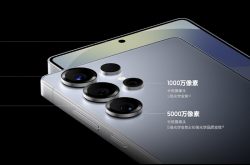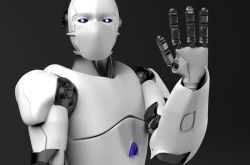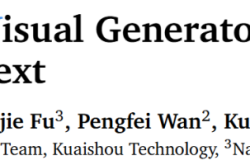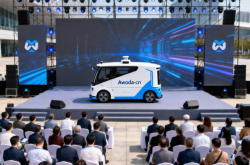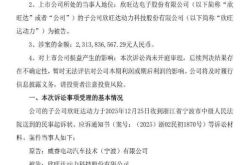ByteDance enters the AI hardware race! Is everything for selling solutions to Volcano Engine?
![]() 09/12 2024
09/12 2024
![]() 422
422
When discussing the major events in the Internet industry in 2023, two events are inevitable: one is that Pinduoduo surpassed Alibaba in market value, and the other is that ByteDance (hereinafter referred to as ByteDance) surpassed Tencent in revenue in the first half of the year.
With two phenomenal products, Toutiao and Douyin, ByteDance has virtually captured the full benefits of domestic traffic, and as domestic traffic gradually peaks, TikTok has opened up new avenues in overseas markets, becoming an important source of growth for ByteDance.
The dazzling success of software products has overshadowed ByteDance's ambition in hardware, but in fact, hardware has always been one of the key ways for ByteDance to explore new scenarios and expand its user base. Over the past seven years, ByteDance has successively attempted to enter the markets of mobile phones, educational hardware, VR, and other hardware products, but the final results were not ideal.

Image source: Pico
With the rise of generative AI technology, and as more and more 3C manufacturers and Internet companies turn their attention to hardware, many insiders consider 2024 as the "first year of AI hardware." In addition to mobile phones and PCs, headphones, glasses, and other devices are also undergoing AI transformation trends.
ByteDance is no exception. In addition to exploring large models, it has also nurtured the idea of developing AI hardware.
ByteDance's first AI hardware: Smart headphones integrated with the Doubao large model
According to a report by LatePost, ByteDance is developing an AI-powered headphone that incorporates the Doubao large model. This product will be integrated with the Doubao App, allowing users to access Doubao through voice commands while wearing the AI headphones, and also control the headphones through the Doubao App.
Friends who regularly follow ByteDance's movements should have anticipated this news. In May of this year, it was reported that ByteDance acquired Chinese headphone manufacturer Oladance for approximately $50 million, which was its latest move in developing wearable devices. Recently, the Kechuang Board Daily reported that ByteDance has completed its acquisition of the open-ear headphone brand Oladance and achieved 100% ownership.

Image source: Oladance official website
Founded in 2019, Oladance positions itself as an innovative consumer electronics technology company. It was the first to propose the patented OWS (Open Wearable Sound) technology and launched the world's first OWS open-ear headphone. Currently, ByteDance's AI hardware team is primarily composed of former Oladance personnel, so it is not surprising that ByteDance chose smart headphones as its first AI hardware product.
Before the rise of AI, ByteDance also made hardware attempts.
At the end of 2018, ByteDance acquired the Smartisan mobile phone team and some patent usage rights from Hammer Technology for hundreds of millions of yuan. Based on the Smartisan mobile phone team, "New Stone Lab" was established. In the following two years, New Stone Lab released two generations of Smartisan mobile phones, TNT monitors, and peripheral products such as speakers. It also integrated the Smartisan R2 mobile phone and the TNT Go monitor into the "LKP" package, attempting to develop office scenarios.
Unfortunately, the hardware market targeting office scenarios received lukewarm responses, and ByteDance shifted the focus of "New Stone Lab" to the educational hardware sector. In October 2020, ByteDance announced the launch of the "EduTech" brand and transferred all its educational products under this brand. Subsequently, ByteDance released its first educational hardware product, the EduTech Smart Light, which was listed by Zhang Yiming as one of the company's progressive businesses in the past year during ByteDance's ninth-anniversary speech in 2021.

Image source: EduTech official website
According to a report by LatePost, in addition to the smart light, ByteDance is also developing multiple educational hardware products such as educational tablets, pocket printers, early childhood educational machines, and electronic dictionaries. However, as of now, only the EduTech Smart Light is listed on the EduTech official website's product page.
The most recent hardware attempt by ByteDance that is closest to us is VR. In August 2021, ByteDance spent billions of yuan to acquire PICO, the leading domestic VR manufacturer in terms of shipments. Just five months before this acquisition, ByteDance had spent tens of billions of yuan to acquire the game developer Moonton.
VR + gaming is a proven path that Meta has already taken, and as we all know, ByteDance's gaming business and PICO have since undergone layoffs, marking a temporary setback in ByteDance's VR hardware journey.
The AI hardware market has huge potential, and ByteDance needs successful cases to sell its solutions
Returning to the news about ByteDance's development of AI hardware, ByteDance is not only developing AI hardware itself but also collaborating with external hardware companies. As ByteDance continues to develop the capabilities of Doubao for various hardware manufacturers, we will see more hardware products integrated with the Doubao large model in the future.
This aligns with ByteDance's logic as an external large model service provider. For example, while ByteDance does not directly sell mobile phones to generate revenue, it can provide mobile phone manufacturers with large model software solutions based on mobile phones to capture the incremental revenue from the AI mobile phone boom.
Earlier, ByteDance partnered with Samsung to become its domestic large model partner in China. Some of the generative AI capabilities of Galaxy Z Fold6's voice assistant Bixby are based on the Doubao large model under ByteDance's Volcano Engine, similar to the integration of Apple's Siri with OpenAI GPT-4o.

Image source: ByteDance
In addition to Samsung, Honor and Xiaomi have also partnered with the Doubao large model. Honor's cooperation covers various office scenarios such as document understanding, interactive question-and-answer, and intelligent assisted creation. Xiaomi's AI assistant "Xiaoai Classmate" provides users with a smarter AI interaction experience based on the Doubao large model.
IDC's AI Mobile Phone White Paper predicts that AI mobile phone shipments will reach 170 million units in 2024, accounting for 15% of overall smartphone shipments. It is not difficult to see that the AI mobile phone market alone has the potential to generate tens of billions of revenue for large model service providers like ByteDance.
In other areas, according to official disclosures by ByteDance, the first batch of members to develop retail AI solutions based on the Doubao large model includes Wumart Group, Douyin E-commerce, Douyin Life Services, Yum China, McDonald's, China Feihe Dairy, Haidilao, and others.
Members of the Auto Large Model Ecosystem Alliance include well-known automotive brands such as Lynk & Co, Geely, GAC Motor, and Great Wall Motors. Additionally, Volcano Engine has signed a strategic cooperation memorandum with Mercedes-Benz, announcing that both parties will collaborate in large models, generative AI, and big data technologies.

Image source: Volcano Engine
In Lei Technology's view, the greatest significance of ByteDance developing AI hardware is to establish a proven large model solution for a particular scenario, which can then be provided as a case study to hardware manufacturers in the same category. After all, the revenue of a single brand cannot compare to that of the entire industry. Many historical cases have shown that companies selling shovels may earn more and safer profits than those panning for gold.
Internet giants flock to AI hardware, and scenarios are the key factor
Compared to other Internet giants, ByteDance's entry into the field is not early. Among domestic Internet giants, Baidu was one of the earliest to venture into AI hardware.
In May 2023, Baidu's Xiaodu launched its first AI learning mobile phone, Qinghe, which integrates six functions: mobile phone, electronic dictionary pen, smartwatch, translator, language learning tool, and flashcard. According to JD.com data, during the 618 shopping festival this year, Xiaodu Qinghe ranked first in brand transactions for learning mobile phones. Subsequently, Baidu also launched the Xiaodu Learning Machine Z30, which incorporates Baidu's Wenxin large model.

Image source: Xiaodu
Apart from Baidu, Alibaba's Tmall Genie has also launched the X6 smart speaker equipped with a large model. Although Meituan has not directly ventured into hardware development, it has launched an AI voice interactive application called "Qiaoyuleban" for wearable devices, which is used on the Xiaotiancai Z10 smartwatch.
There are many similar AI hardware products, including mobile phones, PCs, home appliances... Almost all product categories are actively integrating AI technology, not only to increase sales or unit prices but more importantly, AI hardware capable of running large models directly on the device side offers an unparalleled allure that traditional hardware cannot match: a revolutionary experience in interaction.
In the past, users had to go through multiple steps to achieve certain operations, but now these can be perfectly resolved through voice interaction, eliminating intermediate steps and enhancing user efficiency.
However, the crucial factor that truly determines the popularity of AI hardware is whether the product usage scenarios closely align with user needs. This is evident in the cases of AI hardware pioneers like AI Pin and Rabbit R1, where even a promising start could not avoid a disappointing outcome.

Image source: Humane
For Internet giants, there are many hardware options, but suitable scenarios for AI hardware are relatively limited. The current key competition lies in companies' understanding of consumers, particularly in highly used scenario functions or undiscovered highly used scenario functions.
When the functionality does not match the rigid demand scenarios of hardware products, it inevitably hinders product sales, as evidenced by ByteDance's previous experiences with educational hardware and VR hardware. The principle remains the same, except that the protagonist has now shifted to AI.
Especially for Internet giants like ByteDance, which also serves as a large model service provider, selling AI hardware is just one aspect. The more crucial aspect is identifying functional solutions suitable for AI hardware scenarios and providing them to other hardware manufacturers.
Source: Lei Technology


